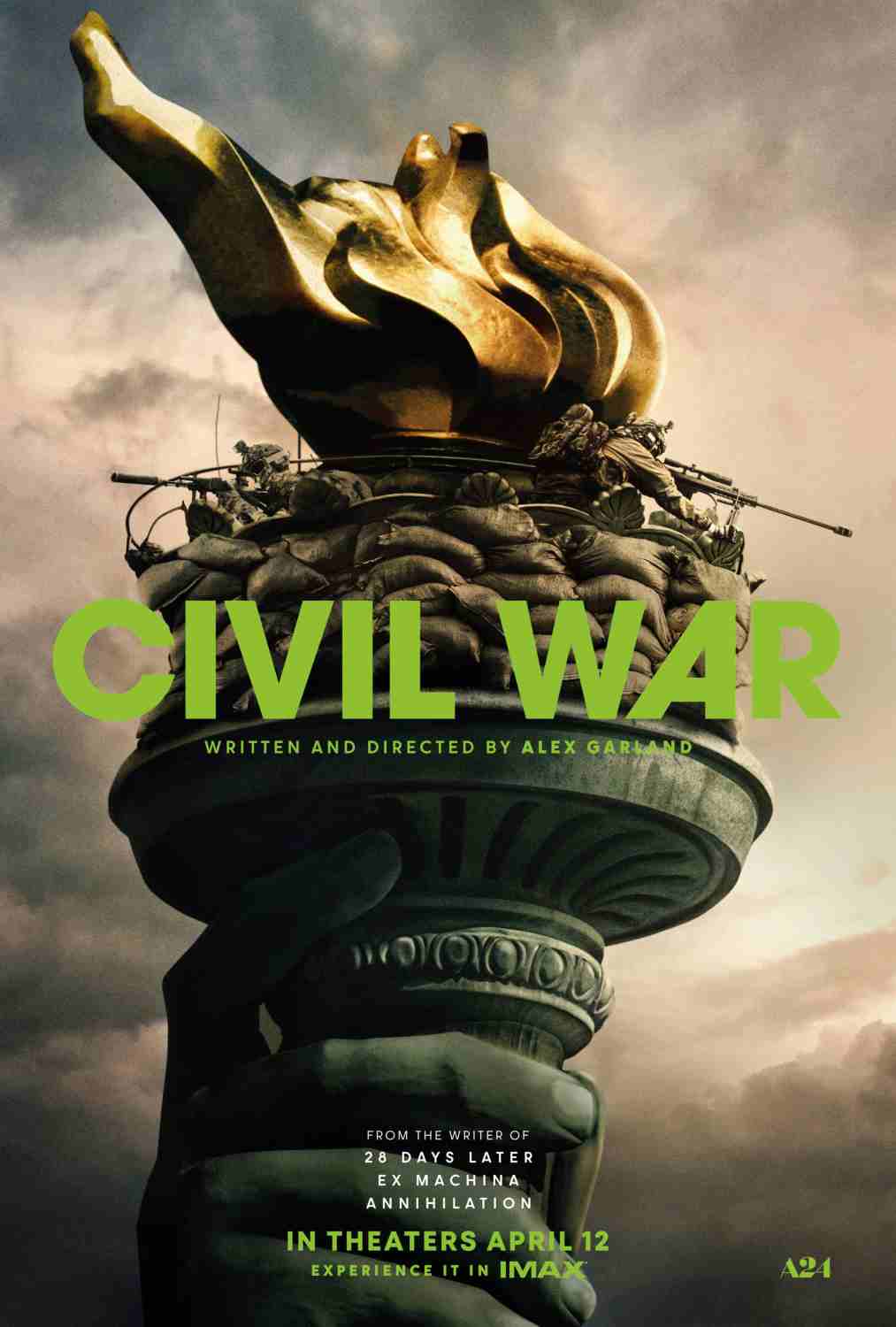A generic morality tale with an elusive premise and plot: Lord Wood reviews 'Civil War'
Civil war in New York Cailee Spaeny as Jessie and Kirsten Dunst as Lee | Image by: FlixPix / Alamy Stock Photo
4 min read
Using the disintegration of the United States into an undefined civil war as its setting, Alex Garland’s film has its memorable moments – but it is ultimately let down by narrative crassness and paper-thin characters
I sat down to watch Civil War thinking I was about to see a war movie that doubled up as a futuristic parable and warning about a divided America. But it’s not that film. It’s not even close.
Instead, the British writer-director Alex Garland has used the disintegration of American democracy into civil war as the setting for a generic morality tale – on the ethics of journalism, and the addictiveness of violence when civilised norms evaporate. What he has produced is a film that is conceptually interesting with memorable moments, but ultimately let down by narrative crassness and paper-thin characters.
So much of the premise and plot of Civil War is elusive. We are in a modern-day USA in which Texas, California and the southern Florida Alliance are waging war on the loyalist states, closing in fast on a besieged president (Nick Offerman) holed up in the White House. We never know what the civil war is about. No character ever discusses it. Its implausibility (California teaming up with Texas?) is irrelevant. Deliberately so, I think: because this is a film about what war does to humans, not what conflict does to America.
This is a film about what war does to humans, not what conflict does to America
Or, specifically, what it does to journalists. The war is seen through the eyes of a renowned war photographer, Lee Smith (Kirsten Dunst), who with her Reuters colleague Joel (Wagner Moura) races through war zones to get to DC, to secure an exclusive interview with the president before he is captured by the rebels. They are joined by an ambitious young photographer, Jessie (Cailee Spaeny), who – in the only three-dimensional relationship in the film – progresses from adulatory student of Lee Smith to ambitious competitor, while her mentor’s appetite for the human detachment and moral compromises involved in chronicling the horrors of war seems to wane.
These are characters who see themselves as human cameras. “We don’t ask. We record so other people ask,” Smith tells her protégée. The price of this is we learn nothing of interest about any of them. They are canvases on which the effects of war are painted in crude brushstrokes. Violence thrills them yet also appals them. They feel alive and scared. Capturing the war requires compulsion and detachment that destroys your humanity, and the cartoon ending shows what happens to journalists both when they lose that compulsion and when they are consumed by it.
 Strangely for a universal parable, Civil War is cinematically soaked in Americana. The sense of social breakdown is cleverly conveyed by familiar scenescapes (the Manhattan skyline, American freeways) subtly punctuated by distant explosions and abandoned cars. Set piece scenes are accompanied by music that samples a baffling array of American traditions: country music one minute, hip-hop in a housing project shoot-out the next. It is an aesthetic that sits oddly with a story that intentionally avoids cultural depth.
Strangely for a universal parable, Civil War is cinematically soaked in Americana. The sense of social breakdown is cleverly conveyed by familiar scenescapes (the Manhattan skyline, American freeways) subtly punctuated by distant explosions and abandoned cars. Set piece scenes are accompanied by music that samples a baffling array of American traditions: country music one minute, hip-hop in a housing project shoot-out the next. It is an aesthetic that sits oddly with a story that intentionally avoids cultural depth.
What else? There is a scary cameo from murderous gun-toting Jesse Plemons, which says something about racism but I’m not quite sure what. There is an allusion to real-life war photographer Lee Miller (after whom Lee Smith’s character is named), whose photo bathing in Hitler’s bathtub on the day Hitler died in April 1945 captures something of the confused ethics of war photography, but I’m not quite sure what. In fact “I’m not quite sure what” isn’t a bad summary of how I felt about this film. The moral dilemmas of war journalism, and what they say about the challenges to humanity we all feel in the face of violence, is fertile territory for art. But this is a film that doesn’t cultivate that much from the soil.
Lord Wood of Anfield is Labour peer
Civil War
Directed by: Alex Garland
Venue: General cinema release
